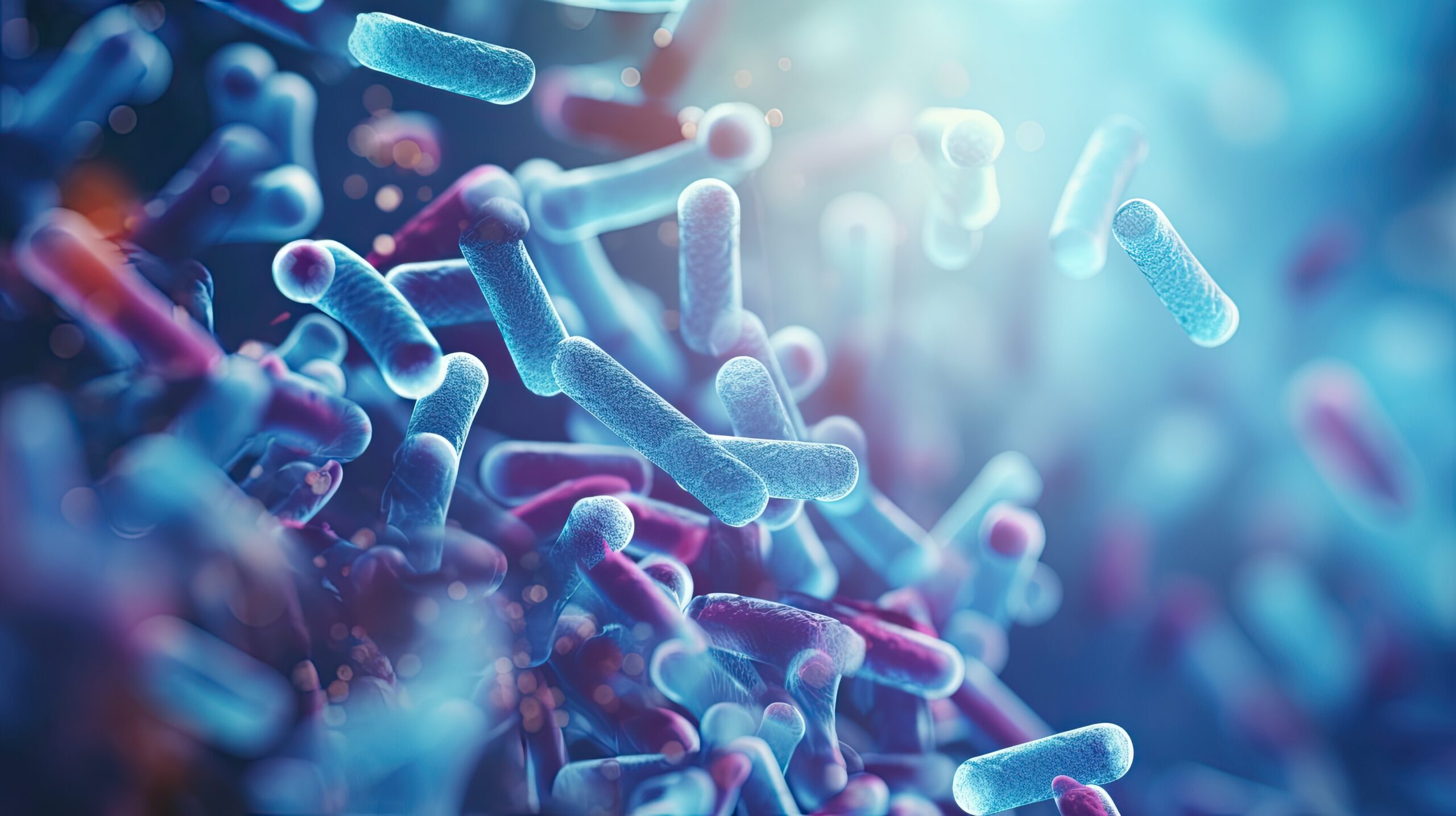Le postbiotique Bifidobacterium longum CECT 7347 ES1 de ADM recompensé au Fi Europe

A l’occasion des traditionnels Innovation Awards remis chaque année lors du Fie Europe, qui s’est tenu du 19 au 21 novembre à Francfort (Allemagne), le jury a décerné le Health Innovation Award au groupe ADM pour son postbiotique Bifidobacterium longum CECT 7347 ES1.
Le Bifidobacterium longum ES1 est une souche probiotique isolée chez des enfants en bonne santé nourris au sein. Les essais précliniques et les essais cliniques sur l’homme ont montré que cette souche est bénéfique pour la santé digestive et qu’elle a des effets de modulation du microbiome.
Santé digestive – La souche augmente la largeur des villosités de l’intestin et la hauteur des entérocytes dans un modèle animal d’entéropathie. Une étude préclinique a montré que la souche diminuait l’expression du TNF-α dans les cellules épithéliales intestinales exposées aux gliadines digérées par B. longum ES1. La souche, stable dans des conditions d’acidité et en présence des sels biliaires, est viable pendant le transit gastro-intestinal (>50% de survie à pH 2 ; >60% de survie à 3% de sels biliaires).
Santé générale de l’intestin – Dans un modèle préclinique, Bifidobacterium longum ES1 a réduit de manière significative les niveaux des agents pro-inflammatoires IFN-γ et TNF-α, associés aux lésions tissulaires et à l’inflammation. In vitro, la souche réduit les marqueurs pro-inflammatoires et augmente le niveau de la cytokine anti-inflammatoire IL-10.8. Elle réduit le stress oxydatif dans le modèle C. elegans, augmentant sa survie.
Modulation du microbiome intestinal – Les données in vitro montrent que la souche inhibe la croissance d’espèces pathogènes du tube digestif, y compris des isolats de Clostridium difficile. Un essai clinique mené auprès d’enfants a par ailleurs montré que l’administration de Bifidobacterium longum ES1 a été associée à une diminution significative du pathogène opportuniste Bacteroides fragilis.
Les études en détail
- Essai d’intervention en double aveugle, randomisé et contrôlé par placebo pour évaluer les effets de Bifidobacterium longum ES1 chez des enfants souffrant d’une maladie cœliaque nouvellement diagnostiquée.
Design : Etude en double aveugle, contrôlée par placebo. 36 enfants nouvellement diagnostiqués avec la maladie cœliaque, une maladie caractérisée par une inflammation intestinale, une dysbiose intestinale et une altération de la structure intestinale. Bifidobacterium longum ES1 consommé à raison de 1 milliard UFC/jour pendant 12 semaines. Résultats : Augmentation plus importante des percentiles de taille dans le groupe Bifidobacterium longum ES1 par rapport au groupe placebo. Diminution des lymphocytes T CD3+ périphériques dans le groupe Bifidobacterium longum ES1 par rapport au groupe placebo. La comparaison entre les groupes a montré que l’administration de la souche a réduit le nombre de bactéries indésirables Bacteroides fragilis et la concentration d’IgA sécrétoire dans les selles par rapport au groupe placebo.
- Étude pilote sur la sensibilité au gluten non cœliaque : effets de Bifidobacterium longum ES1 administré conjointement avec un régime sans gluten
Design : Étude ouverte non randomisée. 30 participants présentant des symptômes attribuables à une sensibilité au gluten non cœliaque (SGNC). Consommation de 1 milliard UFC/ jour de Bifidobacterium longum ES1 pendant 12 semaines.
Résultats : L’association d’un régime sans gluten et de Bifidobacterium longum ES1 a entraîné des améliorations significatives de la fréquence et de l’intensité des épisodes digestifs et extra-intestinaux, y compris au niveau des douleurs abdominales occasionnelles et des gonflements par rapport à la ligne de base.
En résumé : ces recherches montrent que le postbiotique ES1 peut soutenir la modulation positive du microbiome, les bactéries productrices d’acide butyrique, la croissance des bactéries bénéfiques dans l’intestin, l’élimination des bactéries indésirables dans l’intestin.
Un premier lait UHT avec la souche ES1 a été mis sur le marché par la société portugaise Lactogal, dans sa gamme Matinal.

PS : le jury des Awards a par ailleurs tenu à souligner l’intérêt du probiotique MindAbleTM 1714TM développé par Novonesis et positionné dans le soutien de l’humeur.
ADM’s postbiotic Bifidobacterium longum CECT 7347 ES1 wins FIE award
At the traditional Innovation Awards presented each year at the FIE, held last week in Frankfurt (Germany) from 19 to 21 November, the jury awarded the Health Innovation Award to the ADM Group for its postbiotic Bifidobacterium longum CECT 7347 ES1.
Bifidobacterium longum ES1 is a probiotic strain isolated from healthy breast-fed children. Preclinical trials and human clinical trials have shown that this strain is beneficial for digestive health and has modulating effects on the microbiome.
Digestive health – The strain increases intestinal villi width and enterocyte height in an animal model of enteropathy. A preclinical study showed that the strain decreased TNF-α expression in intestinal epithelial cells exposed to gliadins digested by B. longum ES1. The strain is stable under acidic conditions and in the presence of bile salts, and is viable during gastrointestinal transit (>50% survival at pH 2; >60% survival at 3% bile salts).
General gut health – In a preclinical model, Bifidobacterium longum ES1 significantly reduced levels of the pro-inflammatory agents IFN-γ and TNF-α, associated with tissue damage and inflammation. In vitro, the strain reduced pro-inflammatory markers and increased the level of the anti-inflammatory cytokine IL-10.8. It reduced oxidative stress in the C. elegans model, increasing its survival.
Modulation of the intestinal microbiome – In vitro data show that the strain inhibits the growth of pathogenic species of the digestive tract, including isolates of Clostridium difficile. A clinical trial in children also showed that administration of Bifidobacterium longum ES1 was associated with a significant reduction in the opportunistic pathogen Bacteroides fragilis.
The studies in detail
– Double-blind, randomised, placebo-controlled intervention trial to evaluate the effects of Bifidobacterium longum ES1 in children with newly diagnosed coeliac disease.
Design: Double-blind, placebo-controlled study. 36 children newly diagnosed with coeliac disease, a disease characterised by intestinal inflammation, intestinal dysbiosis and altered intestinal structure. Bifidobacterium longum ES1 consumed at a rate of 1 billion CFU/day for 12 weeks. Results: Greater increase in height percentiles in the Bifidobacterium longum ES1 group compared with the placebo group. Decrease in peripheral CD3+ T lymphocytes in the Bifidobacterium longum ES1 group compared with the placebo group. Comparison between the groups showed that administration of the strain reduced the number of undesirable Bacteroides fragilis bacteria and the concentration of secretory IgA in the stools compared with the placebo group.
– Pilot study on non-celiac gluten sensitivity: effects of Bifidobacterium longum ES1 administered in conjunction with a gluten-free diet
Design: Non-randomised, open-label study. 30 participants with symptoms attributable to non-celiac gluten sensitivity (NCGS). Consumption of 1 billion CFU/day of Bifidobacterium longum ES1 for 12 weeks.
Results: The combination of a gluten-free diet and Bifidobacterium longum ES1 resulted in significant improvements in the frequency and intensity of digestive and extra-intestinal episodes, including occasional abdominal pain and bloating, compared with baseline.
In summary: this research shows that ES1 postbiotics can support positive modulation of the microbiome, butyric acid-producing bacteria, the growth of beneficial bacteria in the gut and the elimination of undesirable bacteria in the gut.
The first UHT milk with the ES1 strain has been marketed by the Portuguese company Lactogal, in its Matinal range.
PS : The Awards jury was also keen to highlight the value of the MindAbleTM 1714TM probiotic developed by Novonesis to support mood.